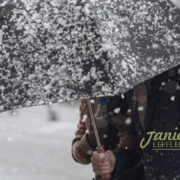Are You Considering Weather When Buying a Home on Vancouver Island?
You consider price, location, commute time, and school districts when house hunting. Have you thought about adding climate and weather-related risks to your list?
Heat waves, severe flooding, violent hailstorms, tornadoes, rising sea levels, and raging wildfires—these extreme weather events all present major challenges for Canadians. This includes those in the market to buy a home.
Changing climate conditions means home buyers should be asking lots of questions and thinking about how the weather could impact their property. For example, if your dream house is in a neighbourhood susceptible to floods, how much will you have to dole out for added insurance?
Will excessive amounts of snow make commuting a huge pain, or even damage your roof? Will your area’s rising temperatures impact how much you pay for air conditioning? Here’s what you need to know.
The cost of extreme weather hits the real estate market—and your wallet
Major weather events seem to be a more regular occurrence these days. With an increasing number of climate-related storms, fires, and floods comes a surge in insurance claims, which have more than doubled since 2005.
Kathryn Bakos is managing director of finance and resilience at the Intact Centre on Climate Adaptation, University of Waterloo. She conducts research on the impact of flooding on Canada’s residential real estate sector and mortgage markets.
“We’re seeing extreme weather events growing, and we track the catastrophic loss claims data— any event that triggers $25 million or more of insured losses, which is what your insurance company pays out—from flood, wildfire, hailstorm on a year-to-year basis,” says Bakos.
From 1983 to 2008, insurable losses ranged from $250 to $450 million per year. Today, they’re up to $2 billion annually. And that’s just what insurance companies pay out. So, if the average flooded basement costs $43,000 to repair, there’s a cap on what insurance covers. That cap would usually be $10,000 to $20,000. The rest comes out of the homeowner’s pocket.
Flooding and wildfires are the costliest extreme weather events in Canada. In Calgary and Edmonton, hailstorms cause most damage, while East Coast residents deal with severe lightning storms and hurricanes, according to Bakos.
Recently, Bakos’ team performed the first quantitative analysis of the impact flooding has on the Canadian housing market, and the numbers were alarming. “We determined that six months after a flood event, homes located in flooded communities experienced an 8.2% reduction in the sold price of their home compared to their non-flooded counterparts,” she says.
With the average Canadian home worth roughly $650,000, that would equate to about a $53,000 reduction in value. Roughly 1.5 million Canadian homes, about 10% of the housing market, are considered uninsurable for flood risk.
Do your due diligence when shopping for or protecting your home
The federal government plans to develop the Climate Adaptation Home Rating Program. Canadian home buyers could check to assess the risk associated with their property. Until then, Bakos recommends doing some research into any major floods in the area you are looking at. Ask if the property sits on a floodplain. Does the driveway slope away from the home to help prevent water from seeping in? Does the home sit up on the street? Does it have extended downspouts to direct rainwater away from the house?
If your basement windows are at ground level, are there window well coverings? Is there a sump pump and backwater valves in the basement? These all stop water from coming in. Cleaning out your eavestroughs and sweeping leaves away from sewer grates helps to prevent flooding. In some areas, installing hail-resistant roofing and siding material will help guard against hail damage.
Other preventive tips for homeowners who are buying a Home on Vancouver Island
Wildfire zones
- Look for homes with ample separation between them.
- Look for homes with Class A roofing/metal roofs and non-combustible siding.
- Standard homeowner insurance policies in Canada cover damage caused by fires, and also provide coverage to help with the cost of mass evacuations
- Keep combustible materials at least 10 metres away from your home.
- Prune trees to create a 2 m clearance from the ground to the lowest tree branches.
Severe winter storms
- Arrange for snow or ice removal from roofs and balconies to reduce the weight and the risk.
- Keep your home stocked with the essentials in the event of a power outage or road closures due to snow or ice.
- Ensure your walls are properly insulated, your weather stripping is in good shape, and consider storm windows.
- Install snow fences in rural areas to reduce drifting snow on roads and paths.
Tornadoes and hurricanes
- Consider using class 4 impact-resistant roofing when completing upgrades or repairs.
- Most home insurance policies cover windstorm or tornado damage such as losses caused by flying debris and falling branches or trees, and losses to your home and contents if water enters through openings caused by wind or hail.
- Home insurance policies generally do not cover damage caused by coastal flooding and storm surges.
- Be aware of large or aging trees on a property that could be at risk of falling or breakage due to strong winds.
Knowing your climate risk helps prepare you for future costs. As your REALTOR®, I can provide insights on the neighbourhood and what it usually experiences, so please, tap into my expert local insight.



